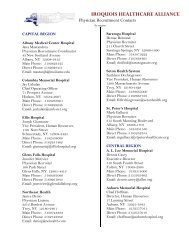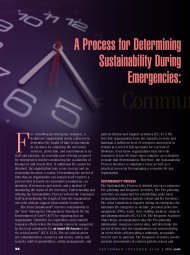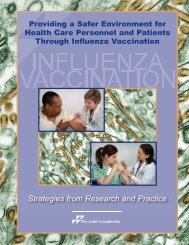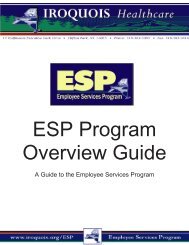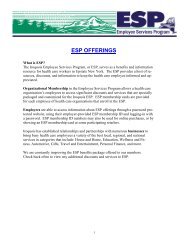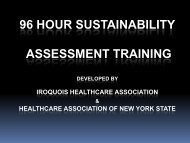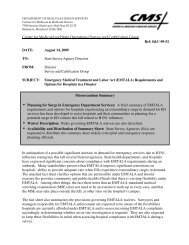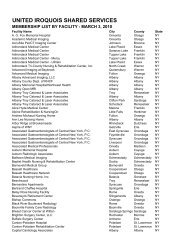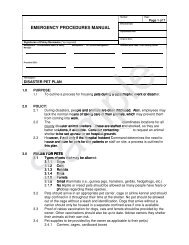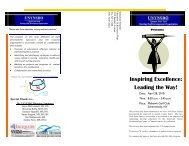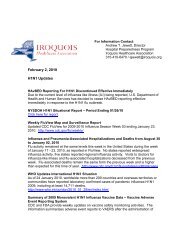NYS Public Health Legal Manual: A Guide for Judges, Attorneys ...
NYS Public Health Legal Manual: A Guide for Judges, Attorneys ...
NYS Public Health Legal Manual: A Guide for Judges, Attorneys ...
Create successful ePaper yourself
Turn your PDF publications into a flip-book with our unique Google optimized e-Paper software.
§ 1.127 NEW YORK STATE PUBLIC HEALTH LEGAL MANUAL<br />
The exercise of a judge’s authority to permit remote appearances<br />
remains governed by statutes that address specific areas of testimony.<br />
Insofar as the defendant in a criminal case is concerned, CPL<br />
§ 182.20(1) authorizes such appearances “except an appearance at a<br />
hearing or trial” (and requires the consent of the defendant <strong>for</strong> any<br />
such remote appearance). Were a public health emergency to lead to<br />
a need <strong>for</strong> a criminal defendant to appear remotely at a trial, and<br />
assuming that the remote appearance satisfied the requirements of<br />
the Confrontation Clause, the appearance could be had only if the<br />
Governor exercised his or her power during a state disaster emergency<br />
to suspend CPL § 182.20.<br />
The Confrontation Clause, by its terms, does not apply to civil cases,<br />
and the courts have found no absolute right to confrontation in civil<br />
trials. See Pope v. Pope, 198 A.D.2d 406 (2d Dep’t 1993) [no right<br />
<strong>for</strong> prisoner to appear personally at civil trial in which he or she is a<br />
party]. Civil trials are instead governed by general principles of due<br />
process, and a denial of confrontation would be one element in a<br />
determination of whether a party received a fair trial. See, e.g., Beeley<br />
v. Spencer, 309 A.D.2d 1303, 1305-06 (4th Dep’t 2003) [examining<br />
impact on fairness of personal injury trial of statements of<br />
eyewitnesses being introduced without their testimony]. Issues of<br />
remote appearances in civil trials due to public health emergencies<br />
may best be handled by obtaining the consent of the parties.<br />
[1.127] D. Protection of Court Personnel<br />
[No applicable statutes or rules]<br />
Commentary<br />
Outbreaks of contagious diseases can put judges and nonjudicial<br />
court personnel at risk if the participants in court proceedings have<br />
those contagious diseases. One option is to bar the presence of such<br />
infected individuals from the courthouse. This can be done by<br />
adjourning proceedings involving litigants who are known to have<br />
an infectious disease, or by getting infected individuals to voluntarily<br />
absent themselves physically from the courtroom where the pro-<br />
72



